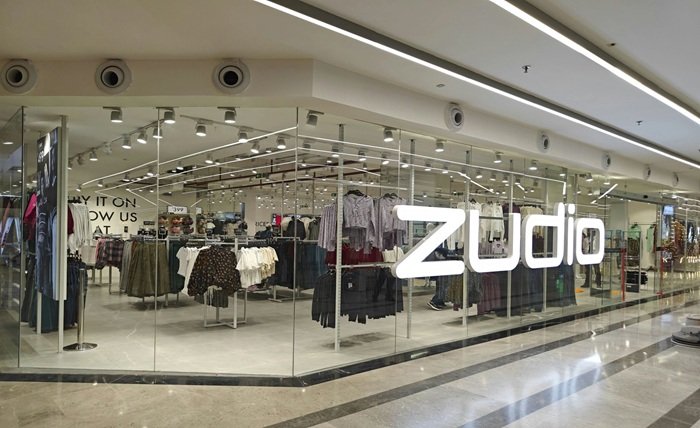The question “Why did Roku stock crash?” has been a topic of conversation for many investors. Roku, a leading player in the streaming industry, saw its stock plummet, leaving many puzzled and concerned. Understanding the reasons behind the Roku stock crash is essential for comprehending the market forces affecting technology and streaming services.
Roku has often been considered a promising investment because of its growth in the streaming industry. However, the Roku stock crash highlights the vulnerability of tech stocks to broader economic conditions, competitive pressures, and internal financial issues.
Roku’s Revenue Challenges
One of the primary reasons for the Roku stock crash is related to revenue challenges. Investors have been asking, “Why did Roku stock crash?” and the answer often points to disappointing earnings reports. The company’s revenue growth has slowed down compared to previous years.
Roku’s revenue comes from multiple sources, including hardware sales, subscriptions, and advertising. When any of these revenue streams show weakness, investor confidence can drop, leading to a decline in the stock price. The market’s expectations were not met, which played a major role in the Roku stock crash.
Broader Economic Conditions
Another factor that helps explain “Why did Roku stock crash?” is the broader economic environment. The overall economic climate has not been favorable for growth-oriented tech stocks, which are particularly sensitive to interest rate hikes and inflation fears.
The Federal Reserve’s policy changes, including interest rate increases, have made growth stocks like Roku less attractive to investors. These broader economic conditions led many investors to reallocate their portfolios, which contributed to the Roku stock crash.
Increased Competition in the Streaming Market
To understand roku stock one must consider the increased competition in the streaming market. Roku faces stiff competition from big players like Amazon, Google, and Apple, which have similar streaming platforms.
These companies not only have strong financial backing but also possess significant brand loyalty. The increased competition makes it harder for Roku to maintain its market share, which has raised concerns among investors. This intense competition and the challenge of differentiating Roku’s offerings have been contributing factors to the Roku stock crash.
Disappointing Earnings Reports
“Why did Roku stock crash?” can also be answered by looking at disappointing earnings reports. When companies like Roku fail to meet Wall Street’s earnings expectations, the stock price often reacts negatively. Investors are highly focused on financial performance, and any signs of underperformance can trigger a stock decline.
In Roku’s case, missed earnings expectations and weak revenue guidance for upcoming quarters led to significant concerns about future growth prospects. This situation was a major contributor to the Roku stock crash, as it diminished investor confidence.
Advertising Revenue Decline
The decline in advertising revenue also explains “Why did Roku stock crash?” Roku relies heavily on advertising revenue, as ads are one of the company’s major income streams. Any decline in this revenue can have a severe impact on the overall financial health of the company.
In recent times, the advertising market has become more volatile, with many companies reducing their ad spending amid economic uncertainty. This has affected Roku’s ad revenue, which played a key role in the Roku stock crash. The streaming industry’s reliance on advertising revenue makes it highly sensitive to shifts in marketing budgets.
Read more about : however synonym
Supply Chain Issues and Hardware Sales
Another important factor in answering “Why did Roku stock crash?” is supply chain challenges affecting the company’s hardware sales. Roku generates revenue from the sale of its streaming devices, and any supply chain disruptions can have a direct impact on its bottom line.
The global chip shortage, which has affected many industries, also impacted Roku. The company faced difficulties in sourcing the components needed for its devices, leading to reduced sales. This issue has been another reason behind the Roku stock crash, as investors grew concerned about the company’s ability to meet market demand.
Investor Sentiment and Market Volatility
Market sentiment and overall volatility have also played roles in the Roku stock crash. “Why did Roku stock crash?” is partly explained by how investors react to news, economic data, and broader market trends. Negative news or uncertainty can trigger a decline in stock prices, especially for growth stocks like Roku.
In recent times, investor sentiment has been impacted by global concerns, such as geopolitical issues and fears of a recession. These factors made investors more cautious, which led to a sell-off in risky assets, including Roku. The volatility in the market contributed to the Roku stock crash, as investors sought safer investments.
The Impact of Subscriber Growth Slowdown
Another reason “Why did Roku stock crash?” can be attributed to the slowdown in subscriber growth. Subscriber growth is a critical metric for streaming services, as it directly impacts advertising revenue and user engagement. Roku has seen a slowdown in the growth of its user base, which raised concerns about the company’s long-term prospects.
The slowdown in subscriber growth can be linked to increased competition and market saturation. Many consumers already have streaming devices, which makes it harder for Roku to acquire new users. This decline in subscriber growth contributed significantly to the Roku stock crash, as it impacted future growth expectations.
Analysts’ Downgrades and Negative Coverage
Analysts’ downgrades and negative media coverage have also contributed to the Roku stock crash. When analysts downgrade a stock or issue negative coverage, it can lead to a decline in investor confidence. “Why did Roku stock crash?” can be partly answered by these downgrades and negative sentiment surrounding the company’s future.
Several analysts downgraded Roku’s stock due to concerns over slowing revenue growth, increased competition, and overall financial performance. This negative outlook from financial experts further fueled the Roku stock crash, as investors feared that the company might face more challenges in the future.
Conclusion
So, why did Roku stock crash? The Roku stock crash can be attributed to a combination of factors, including revenue challenges, increased competition, disappointing earnings, a decline in advertising revenue, supply chain issues, and negative market sentiment. The streaming industry remains highly competitive, and Roku faces numerous challenges as it tries to maintain its market position.
The Roku stock crash serves as a reminder of the volatility associated with growth stocks, especially in times of economic uncertainty. Investors must carefully analyze financial reports, market conditions, and competitive dynamics before investing in companies like Roku. Despite the recent challenges, Roku remains a significant player in the streaming industry, but the road to recovery may be challenging.
FAQs
1. Why did Roku stock crash recently?
Roku’s stock crashed due to a combination of factors, including revenue challenges, increased competition, and disappointing earnings reports.
2. How has competition affected Roku’s stock price?
Increased competition from big players like Amazon, Google, and Apple has put pressure on Roku, making it difficult to maintain market share and contributing to the stock crash.
3. Did economic conditions play a role in the Roku stock crash?
Yes, broader economic conditions, including interest rate hikes and inflation concerns, led to decreased investor interest in growth stocks like Roku, contributing to the crash.
4. What impact did advertising revenue have on Roku’s stock?
The decline in advertising revenue was a key factor in Roku’s stock crash, as advertising is one of the company’s major income streams and it faced reduced ad spending from advertisers.
5. Will Roku recover from the stock crash?
Roku’s recovery will depend on its ability to overcome revenue challenges, supply chain issues, and competition. While it’s still a major player in the streaming industry, future growth will depend on various factors, including market conditions and the company’s strategic decisions.











